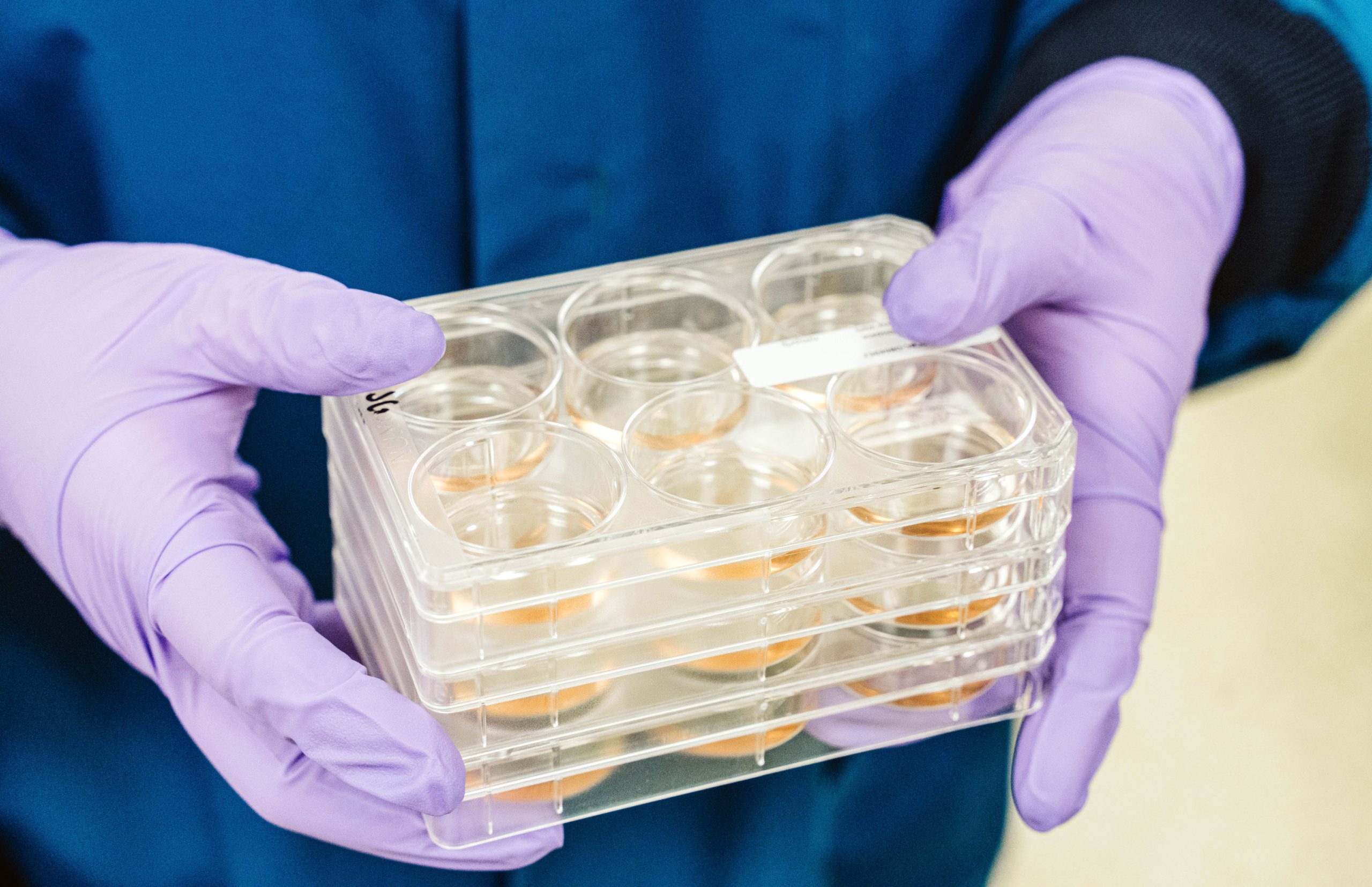X-linked Dystonia Parkinsonism
This iPSC collection serves as a model for X-linked Dystonia Parkinsonism (XDP), a rare, neurodegenerative movement disorder that primarily affects Filipino men from the island of Panay. Affected individuals typically develop dystonic symptoms in adulthood which worsen over time to include features of Parkinson’s disease. The neuropathology of XDP has not yet been fully defined, but previous studies have reported a progressive loss of striatal medium spiny neurons in the brains of individuals with XDP.
Recent research studies have shown that XDP is most likely caused by a disease-specific SINE-VNTR-Alu (SVA)-type retrotransposon insertion in an intron of the human TAF1 gene. The SVA contains a hexameric sequence (CCCTCT)n, the length of which is polymorphic among patients and inversely correlated to age of disease onset. The insertion results in aberrant TAF1 mRNA splicing and partial intron retention which decreases levels of the full-length transcript.
The cell lines deposited by Massachusetts General Hospital and University of Luebeck may be useful for investigators probing cellular defects specific to XDP, pathways linking dystonia and PD, and/or mechanisms of X-inactivation as they relate to X-linked disorders.
Massachusetts General Hospital
These cell lines, deposited by Drs. Cristopher Bragg and Nutan Sharma from the Collaborative Center for X-linked Dystonia-Parkinsonism (XDP) at Massachusetts General Hospital, consists of iPSCs reprogrammed fibroblasts from North American donors of Filipino descent. The cell lines are derived from affected XDP males, female carriers, and unaffected male family member controls. This collection also includes CRISPR corrected cell lines in which the SVA has been excised. For more information, visit https://www.massgeneral.org/xdp-center/.
Affected males and carrier females are positive for 7 of the haplotype markers, whereas control male relatives have wild-type sequences at all positions and appeared neurologically normal upon exam.
Additional information regarding age, sex, disease status, relationships and hexameric repeat length may be found here.
The publication describing this collection of X-linked Dystonia Parkinsonism iPSCs may be found here.
A publication containing supplementary information describing the characterization of the female carrier cell lines in this collection may be found here.
A publication using cell lines from this collection that describes the identification of a specific genetic change that may be the cause of X-linked Dystonia Parkinsonism may be found here.
University of Luebeck
These cell lines, deposited by Dr. Christine Klein, Dr. Karen Gruetz and Dr. Philip Seibler from the University of Luebeck, consists of iPSC lines reprogrammed from fibroblasts from Filipino donors. The cell lines are derived from affected XPD males, female carriers and unaffected male controls.
Affected males and females and carrier females are positive for all 7 of the haplotype markers. The 48-bp deletion was not found to be present in control males.
Additional information regarding age, sex, disease status, relationships and hexameric repeat length may be found here.
A publication using cell lines from this collection that describes altered glutamate response and calcium dynamics may be found here.
A publication using cell lines from this collection that describes a genome-edited model may be found here.
Showing 1–16 of 64 results
Cell Line | Cell Line Alias | Cell Type | Disease | Genetic Alteration/Mutation | Sex | Age at Collection | Ethnicity | Genetically Related Cell Lines | dbGaP Data |
|---|---|---|---|---|---|---|---|---|---|
Human iPS | None reported | Male | 53 Years | Asian > Filipino | No | No | |||
L-7994 | Human iPS | X-linked Dystonia Parkinsonism | Male | 37 Years | Asian > Filipino | Yes | No | ||
L-7994 | Human iPS | X-linked Dystonia Parkinsonism | Male | 37 Years | Asian > Filipino | Yes | No | ||
Human iPS | Carrier of X-linked Dystonia Parkinsonism | Female | 34 Years | Asian > Filipino | Yes | No | |||
Human iPS | Carrier of X-linked Dystonia Parkinsonism | Female | 34 Years | Asian > Filipino | Yes | No | |||
Human iPS | X-linked Dystonia Parkinsonism | Male | 49 Years | Asian > Filipino | No | No | |||
Human iPS | X-linked Dystonia Parkinsonism | Male | 49 Years | Asian > Filipino | No | No | |||
L8357 | Human iPS | None reported | Male | 37 Years | Asian > Filipino | No | No | ||
L8357 | Human iPS | None reported | Male | 37 Years | Asian > Filipino | No | No | ||
L8360 | Human iPS | None reported | Male | 35 Years | Asian > Filipino | No | No |
